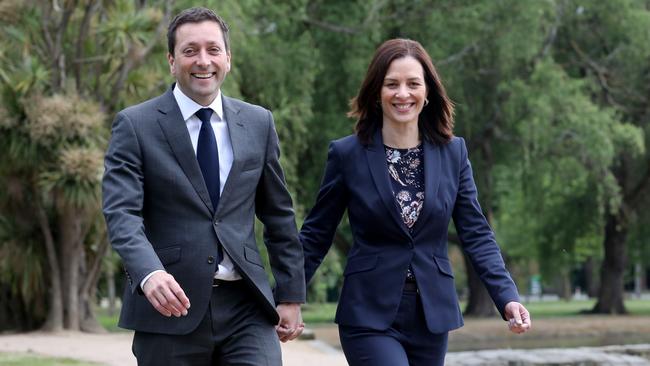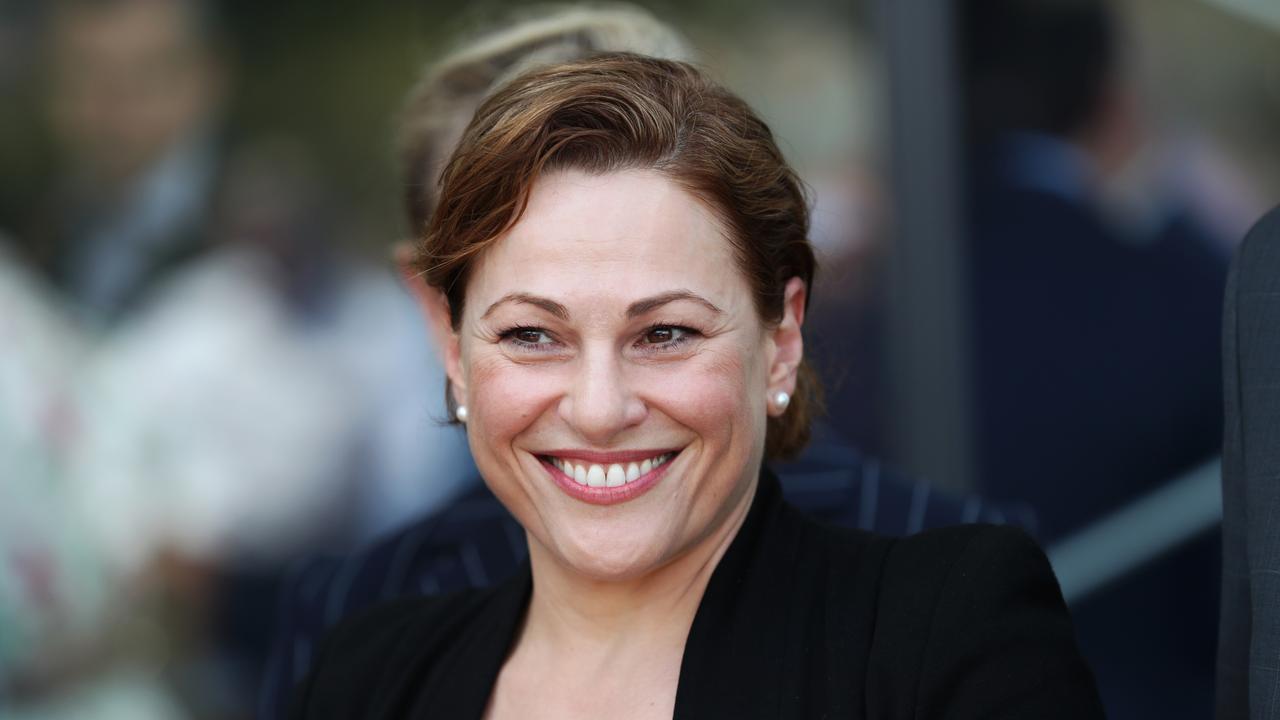Victorian election: Guy’s plan to release pressure on capital
Matthew Guy would like every Victorian, before they vote in tomorrow’s election, to lie back and think of England.

Matthew Guy would like every Victorian, before they vote in tomorrow’s election, to lie back and think of England.
With new Australian Bureau of Statistics population forecasts showing that eight out of every 10 Victorians will be crammed into a bulging greater Melbourne by 2027, the Opposition Leader believes a long-term solution can be adapted from Britain, where successive governments since Margaret Thatcher’s have pursued a policy of decentralisation.
Well before it became politically fashionable, Mr Guy was banging the drum on population, warning that it was unsustainable for Victoria to become a city state dominated by a heaving and eventually, unliveable Melbourne.
In February last year, when the opposition’s population policy taskforce was touring the state, talking to regional communities and shaping what is now the central, policy framework of the Coalition’s 2018 election pitch, Mr Guy dropped in on a consultation session in the Latrobe Valley to listen to complaints about slow trains and uncertain job prospects.
Back then, Mr Guy said a sensible conversation was needed about where the state was heading. On the eve of a career-defining poll, his message has found an echo in Canberra and Sydney, as federal and state governments increasingly look to rebalance our demographic future.
“When I was planning minister I kept seeing figures showing that Melbourne by 2040 would be a city of over eight million people, the biggest city in Australia, and it will account for more than 80 per cent of Victoria’s population,’’ Mr Guy told The Australian as his blue campaign bus left the last of Melbourne’s sprawling western suburbs on its way to Ballarat.
“I think that is utterly unsustainable for the state. Population growth is central to everything a state government does. We can’t keep going on the path of being a city state, which is what Victoria is on the path of: one great big heaving, massive metropolis and the rest of the state being forgotten.’’
Mr Guys says it is abhorrent that commuters lose three hours of their day travelling the 80km round trip between Frankston — a marginal seat the Liberals must win to form government — and the city. He warns that, unless something changes, Melbourne will “collapse upon itself”, and economic growth will stall.
This dramatic imagery is in keeping with the Coalition’s election message, which aims to tap into city-voter concerns about house prices, road congestion, long travel times, cost of living and the daily pressures that come with living in a big, fast growing city.
Mr Guy says average Australians are enduring an “income recession’’: a creeping, financial frustration where, even though their wages are growing, they have less disposable income due to rising household bills and other expenses. “Australians and Victorians are exasperated at that,’’ Mr Guy says. “I think that is a real sleeper in this election.’’
He insists that violent crime is out of control, that elements of the justice system are broken, that tougher sentencing and bail laws are needed to keep people safe. He denies his campaign is designed to exploit anxiety. Rather, “it is an appeal to people to recognise that these issues are real and someone is there to help them: a Coalition government”.
Population decentralisation is a long-term policy objective, one that will require the support of future governments, whether Labor or Coalition, to succeed.
The policy prescriptions on offer are a mix of economic and lifestyle incentives for people to make the shift from Melbourne to regional cities such as Ballarat, Geelong, Bendigo or Shepparton: faster rail links between regional centres and the city, a 1 per cent payroll tax for regional businesses, a billion-dollar spending program for regional roads and upgrades to regional hospitals.
To sceptics who argue that urban centralisation is an irreversible, 100-year-trend that is being accelerated by our transition from manufacturing towards a service-based economy, Mr Guy points to Britain where, since the 1980s, new rail links from London to the southeast and hi-tech jobs in post-industrial, midland towns have helped preserve the balance between London and the rest of Britain. In Britain, roughly the same size as Victoria, one in eight people lives in London. In Victoria, three out of four live in Melbourne.
Mr Guy is agnostic when it comes to overseas immigration: neither supportive nor opposed to the sort of cuts in the permanent intake being discussed in Canberra. He agrees that much of Melbourne’s population growth is due to an influx of temporary migrants, particularly foreign students, but says there is no need to “put up the shutters’’ and destroy an important export market.
“The issue in Victoria is not the number,’’ he says. “The issue is where they are going.’’
Four years as Opposition Leader is a long stretch in Victoria, where set parliamentary terms offer no prospect of early parole. Mr Guy has lost some bark along the way, most memorably last year when he dined at the Lobster Cave, a well known seafood restaurant, in the inadvertent company of an Italian businessman suspected by police of being a mafia figure. Throughout the campaign, his blue bus has been doggedly pursued by ALP supporters dressed as lobsters.
Mr Guy says he hasn’t dwelled on that episode, but it goes to a fundamental question for voters in this election: whether the 44-year-old political operative and former planning minister has the temperament and judgment to be premier.
When this is put to Mr Guy, he says it is a question Victorians must answer. He also recalls some advice given to him by Scott Ryan, a friend, former housemate and current Victorian senator who has ridden the bus with him for much of the campaign.
“He always said to me when I took this job: trust your instincts,” he said. “In the cases I do, things seem to go well.’’


